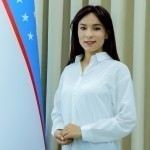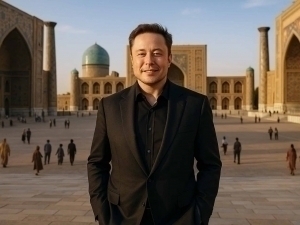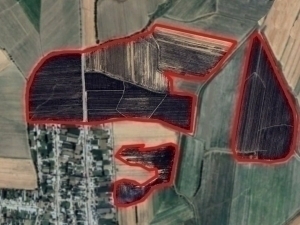Farghani in space: When will Uzbeks fly?
Tech News
−
16 January 2025 7717 7 minutes
Recently, it was announced that the first artificial satellite of the Turkish company Farghani Space was successfully launched into orbit. According to the company’s CEO, Seljuk Bayrakdor, the satellite, FGN-100-d1, will be integrated into the global positioning system (GPS). The intriguing aspect of this milestone is that the company is named after the renowned Uzbek astronomer Ahmad al-Farghani.
"Farghani, known in the West as Afraghanus, was a pioneering Uzbek scientist who made significant discoveries in his time. We chose this name out of respect for his legacy. Our goal is to be the Farghani of Turkey, continuing our journey grounded in the strong roots of our civilization," Bayrakdor explained when asked about the inspiration behind the name.
While Turkey is naming its space ventures after a distinguished Uzbek ancestor, what are Uzbek astronauts doing today? On January 16, a press conference was held at the Agency for Information and Mass Communications, where the "Uzbekcosmos" Agency outlined its activities for 2024. As the primary organization responsible for space research and satellite launches in Uzbekistan, "Uzbekcosmos" focuses largely on geological and environmental applications of space technology.
"The State Space Monitoring System, using aerospace technologies, monitors sectors such as ecology, geology, agriculture, land relations, water management, and forestry, helping to identify over 100,000 potential violations," stated the agency at the press conference.
In particular, the agency’s Center for Space Monitoring and Geoinformation Technologies has detected 96,312 potentially illegal buildings and structures across Uzbekistan, spanning an area of approximately 9,200 hectares.
Additionally, as part of the space monitoring initiative, the agency identified 1,928 illegal landfills in 12 regions, covering an area of around 721 hectares.
"To prevent environmental damage and soil degradation, Uzbekcosmos has used space monitoring to identify 2,266 cases of straw burning on an area of 31,483.2 hectares cleared of grain crops in Surkhandarya, Tashkent, Andijan, Jizzakh, Namangan, Samarkand, Fergana, and Kashkadarya between June and July 2024," explained Mukhiddin Ibragimov, Head of the Department of Aerospace Activities and Space Monitoring Systems Development at "Uzbekcosmos".
While Turkey continues to make strides in space exploration, Uzbekistan is actively utilizing space technology to address pressing environmental challenges. The question remains: when will Uzbekistan’s own astronauts make their mark in space?
While the "Uzbekcosmos" Agency focuses heavily on tasks such as monitoring hayfields and identifying illegal construction, questions are being raised about whether it is conducting the scientific space research expected of an organization with its name. A journalist from QALAMPIR.UZ approached agency officials with this very query. Muhiddin Ibragimov, the head of the Department of Aerospace Activities and Space Monitoring Systems Development at "Uzbekcosmos", responded by explaining that while launching a cosmonaut might seem simple, Uzbekistan currently does not have a need for it.
"In 2022, I said ‘no’ to the idea of launching an artificial satellite. At the time, there was no logical reason to do so because there was no market for it. If you launch a satellite, you’d be spending $100-200 million of taxpayer money, and you wouldn’t get any immediate benefits. Moreover, there would be no efficiency because the market had not been established. When you go to ministries, departments, or the private sector and offer satellite images, they would have no use for them. There was no one in the ministries to process them," Ibragimov explained.
He further explained that satellites have a lifespan of 5 to 7 years, and after this period, the question arises: "What did we achieve with taxpayer money?" To avoid such questions, "Uzbekcosmos" focused on laying the groundwork first. "Today, we’ve created a market capable of processing images covering almost 600,000 to 1 million square kilometers, both in the state and private sectors," he continued. "Now, I can confidently say that we are working on launching a satellite group. In accordance with the presidential decree, we are studying a satellite group for remote sensing of the land and preparing a proposal, which we are working on with various countries. Once everything is calculated and finalized, we will submit this proposal. When a decision is made, we will, of course, inform the public."
However, the perspective in Turkey seems to differ. According to Seljuk Bayrakdor, the founder of Farghani Space, nations that do not control their skies cannot effectively protect their homeland.
“Nations that cannot control their skies cannot protect their homeland. As we celebrate the 100th anniversary of our independence, and in line with Ghazi Mustafa Kemal Atatürk’s vision that ‘The future is in the sky,’ nations without space capabilities cannot defend themselves or their interests. In this regard, we have initiated a space program, utilizing the knowledge and equipment we have gained from unmanned aerial vehicles, and we have already begun working with an engineering team in this field," Bayrakdar stated.
While "Uzbekcosmos" is taking a cautious, long-term approach, its Turkish counterparts are moving ahead with their ambitions in space, highlighting a difference in approach to the role of space exploration in national security and advancement.
Muhiddin Ibragimov, the head of the "Uzbekcosmos" agency, recently praised Turkey's Farghani Space project and announced that Uzbekistan would participate in the satellite initiative the company has begun to test.
"Farghani is a fantastic project! Their primary focus is on near-IoT and GPS, and they are positioning it as a competitor to the existing GPS system. It's a scientific endeavor, and they are currently conducting it as a test. We are in close contact with them, and they plan to launch 100 satellites within the next five years. We’ve expressed our interest in participating in some of those launches.
There are several states within the Turkic Council of Research... I can't tell you everything right now, because we are not ready to disclose it yet. A scientific satellite is currently being built. We are building part of the scientific satellite in Uzbekistan.
A part of the scientific satellite is being built here in Uzbekistan. We are creating one technological component, which will be integrated into the satellite. If all goes according to plan, this satellite will be launched around mid-2026. While it's not a fully Uzbek satellite, our contribution will be integral to the project. When all formalities are completed, we will, of course, share more information with the public," he explained.
However, for Uzbekistan to fully participate in space exploration, the "Uzbekcosmos" agency must address a significant challenge: the lack of astronaut training. Ibragimov noted that, currently, Uzbekistan is not training cosmonauts, and astronomy has been removed from the school curriculum.
"At the moment, astronaut training is not taking place in Uzbekistan. Launching an astronaut is not difficult—if we pay around 50-60 million dollars to the International Space Station or our American colleagues at NASA, we could launch one right now. But we are not pursuing this at the moment because an astronaut's mission should be more than just a symbolic gesture, like taking selfies in space. Every astronaut must be a scientist or an engineer who conducts research and experiments that benefit the state.
Why are we stopping this now? Because a cosmonaut who has flown should not just go up there and, for example, take a selfie. Every cosmonaut must, first and foremost, be a scientist or an engineer. They should conduct research and studies in space that benefit the state. Space offers unique opportunities for innovation—work that cannot be done on Earth can be carried out in space due to its distinct environment. We need to reach that point. After collaborating with the Academy of Sciences and other experts to develop a comprehensive program, we will be ready to take that next step," said Muhiddin Ibragimov, head of the "Uzbekcosmos" agency.
Live
All

